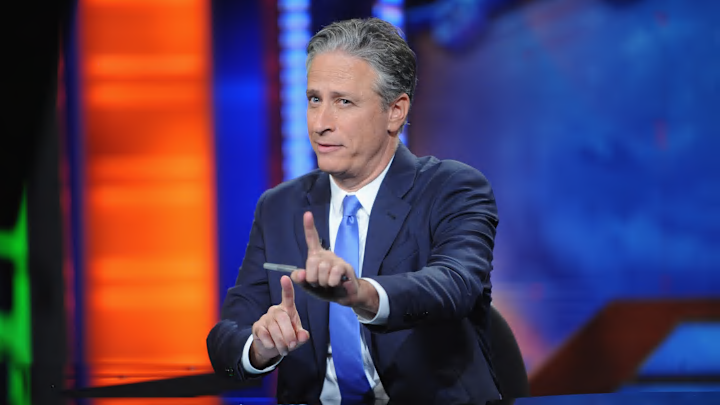In a significant move by Paramount, the websites for several of its cable channels, including Comedy Central, CMT, Paramount Network, and TV Land, have been significantly pared down and now redirect users to Paramount+. This action comes shortly after the abrupt closure of the MTV News website, which resulted in the loss of 20 years of archived content. For example, hip-hop fans will no longer be able to access archives of MTV News’ Mixtape Monday column, and it is now reasonable to expect fans to seek archived content elsewhere (either in DVD form, through piracy, or perhaps even on places like YouTube, as we'll delve into substantially below).
The changes in question appear to be part of a larger cost-cutting initiative by Paramount.
On the Comedy Central website, a pop-up message informs users that while episodes of most series are no longer available on the site, they can still watch Comedy Central through their TV provider or by subscribing to Paramount+. This message is similarly displayed on the websites of CMT, Paramount Network, TV Land, and MTV.
As the Reddit site "r/lostmedia" notes, it's presently much harder now to find any clips from the entire run of Comedy Central's The Colbert Report. Paramount explained these changes in a statement, noting that they are part of broader website updates aimed at simplifying the user experience and directing fans to Paramount+ for content. However, this move has resulted in the removal of a substantial amount of archival material from shows like The Daily Show, South Park, Key & Peele, and Upright Citizen's Brigade from Comedy Central’s site.
Paramount's decision has already impacted viewers
For an example of the decision's impact, the oldest Daily Show clip on YouTube dates back to 2016, despite the show’s 20-year history. It's a decision that's bound to have ripple effects. It was already difficult to find uncensored episodes of "Key & Peele" without owning the series on DVD, but now clips of such TV shows, in general, might be in short supply, especially if big networks think they must "streamline" all content into one or two different streaming services.
While some Comedy Central content remains available on YouTube (including some uncensored clips), it is not as comprehensive as it was on the network’s website. Currently, Paramount+ offers the last two seasons of The Daily Show and several South Park specials, and the 1999 movie, but the primary streaming home for South Park remains on Max. On the other hand, the full run of Key & Peele is available on Paramount+ (though, again, "Key & Peele is censored there).
What is Paramount's goal?
These changes align with Paramount's broader financial strategy as the company seeks to reduce costs by $500 million. This strategy was discussed by Paramount’s co-CEOs, George Cheeks, Chris McCarthy, and Brian Robbins, during a town hall meeting. The company is also considering a round of layoffs, and selling certain assets to manage debt and improve its financial standing.
The archive problem: Could YouTube be a solution?
One question emerges: Could YouTube (and other websites) act as a growing archive source for tough-to-find material? It's an interesting possibility, at least, as YouTube itself is becoming more of a streaming service, currently outperforming Netflix and Hulu in streaming viewership. Yahoo Finance's YouTube page has a video discussing this, noting that part of YouTube's success has been its user-generated content, and how competing streaming services might actually get more on board with that, and attempt to make more interactive content.
However, there is a possibility that YouTube might actually take the opposite lesson, as user-generated content is not always the safest, easiest-to-control content. There's also the possibility of getting sued if individual users try to archive already-existing content, which already happened to the Internet Archive regarding its attempts to archive books (basically like an ordinary library, only online).
Though YouTube might currently enjoy huge success due to relatively random content creators, it's virtually impossible to not recognize YouTube trying to appear more like a conventional streaming service ("YouTube Premium" even sounds similar to Paramount+ or Amazon Prime). From a profitability standpoint, it's simply safer for YouTube to act similarly to its competitors, and merge with them.
Why archiving content isn't so important to big business
If you want insight into why Paramount+ made its bold, potentially distressing decision, consider how big business operates overall, including YouTube. For a while now, ordinary netizen YouTubers have been at the mercy of YouTube channel monetization policies, which are notorious for demonetizing videos with content they deem offensive (which may include the mere presence of swear words).
Basically, there is a culture in corporations of playing it safe, and often in ways that annoy consumers/creators more than creating actual safety (access to archives getting axed, shows getting censored, etc.). So, if YouTube itself becomes mostly just a merged ("conglomerated") extension of these "streamlined" streaming services, a person might reasonably expect smaller creators to get sidelined even more in favor of bigger, more corporate content that is deemed safe for general audiences.
On the plus side, YouTube (and other places) can still have the potential for retaining archival material, especially if it can be done in a way that is both legal and profitable. However, media corporations do not always make the best decisions, and fans will frequently be left scrambling in the wake of their decisions.
